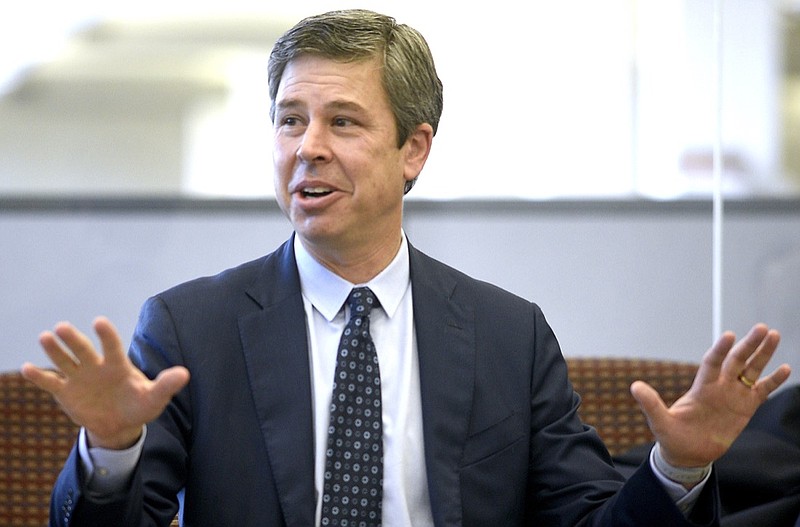On the 51st anniversary of the signing of the Fair Housing Act, a group of volunteer citizens and community leaders unveiled a list of proposed strategies to combat hate in Chattanooga.
The volunteers are members of Chattanooga Mayor Andy Berke's Council Against Hate, something he was inspired to create as a result of the July 16, 2015, terrorist attacks in Chattanooga, he said.
He first announced the council in April 2018, though the council didn't meet until that October.
Since then, members have reviewed research on hate and extremism, consulted with the Federal Bureau of Investigation and organizations such as the Anti-Defamation League, as well as talking to Chattanoogans from various walks of life, including those in the African-American, Latino, Muslim, Jewish, and LGBTQ communities.
Shelley Rose, the deputy regional director of the Anti-Defamation League, said there's been an increase in white supremacist activity.
"They're doing leafletting," she said. "Particularly, we see a lot on college campuses they want to draw attention to their group and themselves and get in people's heads."
Just last year, the University of Tennessee at Chattanooga had two incidents in which white supremacist fliers were distributed around campus, according to the Anti-Defamation League.
On Feb. 9, 2018, an unknown person or group distributed white supremacist fliers that featured Adolf Hitler and were placed on top of Black History Month fliers, the league reports.
Then on April 13, alt-right group Identity Evropa distributed fliers, some of which read, "Our Generation. Our Future. Our Last Chance." Others advertised a book called "White Identity" with the message: "Your professor is scared of this book."
In 2016, two vehicles belonging to a Jewish organization were set on fire.
According to data from the Chattanooga Police Department, there have been 133 hate crimes within the city since 2012.
They're called "bias incidents" - incidents that are motivated by bias against race, sexual orientation, religion, gender, gender identity or even against a disability. Types of crimes range from assault to harassment to vandalism.
Of the 133, only five were determined to be unfounded. Thirty-one were cleared by arrest and 66 were "exceptionally cleared."
Exceptional clearance means that at least one suspect is identified and there is probable cause to arrest, but the suspect has either died, is in custody in another jurisdiction or the victim declines to prosecute (which must be explicitly documented).
With knowledge that extremist behavior is on the rise, council members formed a list of eight strategies to address the problem at its root here locally.
On Thursday, nearly four years after the July 16 attacks, they brought their suggestions to the public:
1. Advocate for public policies to protect targeted constituencies from hate crimes
2. Push for more thorough and consistent reporting of hate crimes at a local, state and federal level
3. Engage young people in combating hate
4. Ensure educators have the skills and resources to identify discrimination and bias and how to properly address it
5. Engage the private sector by surveying employers and workers about workplace attitudes, cultures and incidents of bias
6. Improve the community's media literacy around hate speech and radicalization
7. Create more cultural programming to foster interactions between people who wouldn't normally interact
Attendees broke into seven action teams to brainstorm ideas on how to implement the various strategies, and a sheet was at each table for people to sign up to be a part of that committee. Going forward, the committees will meet once per month and council members will meet with each other and with Berke once per quarter.
So far, there are no anticipated costs for the council to operate during fiscal year 2020, city spokesman Kerry Hayes said.
"Combating hate is all of our responsibilities," Berke said. " The public is the most important piece of this If we work together we can make a lot more progress, and part of that is talking about it openly and making sure that we are proactive in how we approach it."
Contact staff writer Rosana Hughes at rhughes@timesfreepress.com or 423-757-6327 with tips or story ideas. Follow her on Twitter @HughesRosana.
